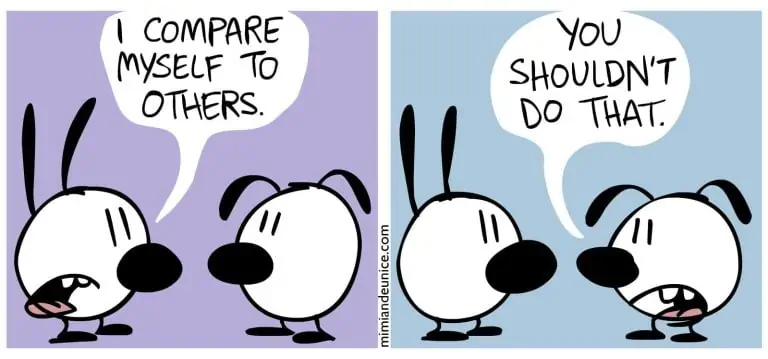What is the Average Wedding Cost, and Why It Doesn’t Matter
The average wedding cost in the United States can skyrocket depending on where you get married and how many people you decide to invite. Add to that, each year there seems to be a new fad that provokes people into thinking that they have to spend their money even more. Yet, there are ways to cut down on your own average wedding cost without giving up the quality of your party.
This guest post delves into why people end up spending so much, and how you can avoid some of these.
Weddings are a time filled with joy but also have become synonymous with spending a lot of money. Many newly engaged couples experience sticker shock at the cost of wedding-related goods and services. From buying an engagement ring, selecting a wedding cake, wedding favors, or even a wedding dress– it’s common for the expense of having a traditional wedding to come as a surprise to first-time wedding planning couples.
It’s important to be armed with some knowledge of what to expect regarding what a wedding costs before you embark on your planning process. Before you can truly relish every moment your wedding day has to offer, you will need to dig deep into budgets and come to conclusions on plenty of wedding questions. One of the top questions couples wonder about is what does a wedding actually cost? The answer is… it’s complicated.
Factors That Make Up the Cost of a Wedding?
There are a host of factors that play into the overall cost of a wedding. There are averages to consider (and toss aside).
The location where your wedding takes place accounts for several factors, such as the average cost of living where your wedding professionals reside. You also have to consider the level of experience and expertise possessed by your vendor team. Of course, costs may vary widely depending on these factors, as well as details such as the length of your guest list. And that’s all before you consider your personal budget and what you’re actually comfortable with or willing to spend. To shed light on how much a wedding costs, keep reading below because we’re diving into all of it!
What is the Average Cost of a Wedding?
Sharing the average cost of a wedding can be a dangerous subject to tackle because averages are a bit problematic. They can be important to touch on because averages can provide somewhat of a baseline of potential costs. However, they aren’t set in stone and do not indicate any requirement of what it takes to have a wedding. Averages shouldn’t be pointed to as a representative of what is normal, usual, or expected.
In our opinion, averages can actually be a little misleading. Let’s get into the reported average cost of a wedding and why these figures do and do not matter. Every year, The Knot conducts an annual survey to ask couples to share how much they have spent on their wedding. Couples report totals, and they also share how much they spent on each wedding professional (wedding or engagement photographer, videographer, florist, baker, etc.) The Knot then compiles all of that data, combines it with additional figures, and reports an average part of their Real Weddings Study.
The average cost of a wedding in 2019 was $28,000. In 2020, the average cost dipped to $19,000 due to the pandemic and the growth in popularity of micro weddings and intimate weddings due to the restrictions on events.
Take Averages with a Grain of Salt
The averages reported by The Knot are important, but they don’t tell the whole story. Keep in mind, for an average to be reported, there must be people and residents of specific states spending more than the average and less than the average. It’s also important to note that taking an average can skew data significantly, reporting a figure that isn’t truly representative of what most people are doing.
For instance, if one couple spends a hefty $1 million price tag on a wedding, and 100 couples spend $10,000 on their weddings, the average of those figures would be skewed higher than the norm.
You also have to consider that the average is taken from a group of couples who specifically use The Knot’s platform to plan their weddings. These couples tend to be those who plan to hire professionals for every aspect of their day and plan a more “traditional” full-service wedding. Their survey likely excludes a large percentage of couples who don’t find their wedding vendors on that platform or who opt to do things themselves. Their average wedding budget figures likely aren’t accounting for couples who plan DIY weddings, backyard weddings, or elopements.
Planning a Wedding on a Smaller Budget is Possible
In addition, an average does not mean that spending less is impossible. In fact, spending less is 100% possible!
The average wedding cost for the real weddings featured on TheBudgetSavvyBride.com is $10,000-$15,000 under the 2020 average from The Knot and less than half the price listed in the 2019 reports. If you want to save money and plan a wedding on a budget, it’s absolutely possible with a little research, time, and effort. The short version of a long story: don’t pay attention to averages or allow them to influence your spending.
Why Do Wedding Professionals Charge So Much?
Understanding the average wedding cost and putting it in context also requires understanding how certain wedding expenses are priced. To understand how (and why) a wedding professional sets the rates for their services, one of the best things to do is to consider your own salary.
Your salary is likely driven by the education and degree backing your work, the labor involved in your position, the experience you bring to your role, and the area in which you reside. In your career, it’s unlikely that you will work for less than you should or can afford. A wedding professional is an entrepreneur, and they are considering the same things as someone in a corporate role. They are also factoring in the costs of self-employment (taxes; funding benefits, such as insurance and retirement plans, on their own).
Like other careers, the more experience and ability a wedding professional has, the more they will charge. Plus, the area where they reside will also impact their rates. For example, an experienced photographer in New York City, where the cost of living is very high, will not charge the same as an experienced photographer in Iowa. The skillset is not different, but the cost to reside in New York City is tremendous.
Wedding Experience and Expertise Come at a Cost
First, there is a different level of expectation with a service when it’s for a wedding. A birthday happens every year. A wedding might be a once-in-a-lifetime experience. As a result, couples expect near perfection from wedding professionals. If that expectation is there, there is also an added cost.
Extensive expertise and experience make that individual’s time, talents, and energy worth more per hour. Hiring an experienced pro will come at a higher cost than a newbie, and most of the time, the results will also be commensurate with the cost. Second, there is a different level of preparation and staff needed for weddings than other events. Circling back to the once-in-a-lifetime aspect, a photographer capturing a wedding may bring an assistant along to split up and never miss a moment over the course of eight hours.
On the flip side, a birthday party tends to happen in half the time, and there’s a single person at the center of it. Additionally, it would be best to consider the time and labor involved in executing a wedding day. Often, what you are paying for is the human resources, time, and labor aspect of the wedding service you’ve hired, from setting up and tearing down to cleaning, arranging, assembling, etc.
Lastly, we often hear that if you don’t mention you’re planning a wedding when inquiring about a service, you won’t experience the “wedding upcharge.” That’s a rumor, and there are reasons to be upfront with the type of celebration you’re planning. Preparation matters, and it’s worth the investment and honesty.
How Should We Decide How Much We Want to Spend on Our Wedding?
The amount you and your partner decide to invest into your wedding day is entirely up to you. Before you begin researching wedding day details, we encourage you to pause and meet with everyone contributing financially toward your big day budget. The goal is to come to a consensus about how much you can afford to spend. This includes deciding who will contribute financially (and to what aspects of the day), as well as how much you’re comfortable spending in total on what is essentially a party.
Sometimes, there is a difference between how much you can afford to spend and how much you’re comfortable or willing to spend. That’s normal and completely understandable! For example, though you may be able to spend $30,000 on your wedding, like the average The Knot suggests, you may actually want to spend $20,000, or even less, depending on your values and other financial goals. The money you don’t invest into your wedding day can instead be saved, put toward a down payment on a home, or spent on a dream honeymoon.
Our best and only advice is this: don’t take on debt to pay for a wedding. Don’t take out a wedding loan or rack up wedding expenses on a credit card that you can’t afford to pay off in full each month. Spend what you can realistically afford and have a wedding within your means. Remember that your wedding day is not the top of the mountain or the culmination of your relationship. It’s just the beginning of your married lives together! Put the costs involved with getting married and hosting a wedding into the context of your life and other financial goals, and plan a wedding without debt. Your credit score will thank you!
Final Thoughts
In closing, a wedding day costs what you want it to cost. Your wedding budget should be determined based on a mixture of your personal financial situation, your values, your priorities, and your overall financial goals for your life together. There are plenty of articles explaining what you “can” and “should” do for your wedding day. But, make sure to stop and consider what you want to do. Then, choose to remember that averages are simply suggestions and that hiring professional help comes at a cost.
Essentially, a wedding should cost what you can realistically afford and feel comfortable spending. Plus, no matter your budget, if you plan your wedding the savvy way and stay true to your values, your big day will be far better than your “average wedding” anyway!
This article originally appeared on Your Money Geek and has been posted with permission.







